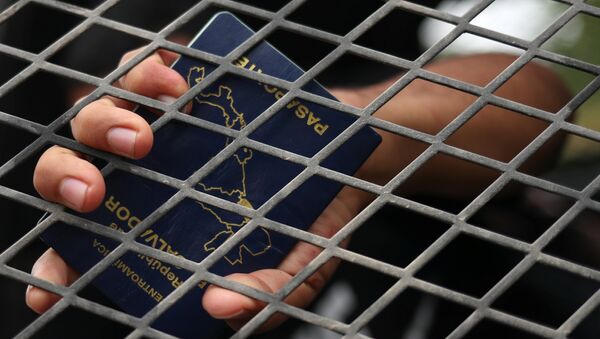US President Donald Trump signed on Friday a proclamation that would prevent immigrants from qualifying for asylum if they entered the United States illegally.
"We need people in our country but they have to come in legally and they have to have merit," Trump said Friday before departing for Paris.
The Department of Justice said in a press release on Friday that migrants who illegally enter the United States through the southern border with Mexico will be ineligible for asylum. Currently, migrants who enter the United States illegally between ports of entry are able to apply for asylum.
READ MORE: Trump: US Is Going To Hold Migrants in ‘Tent Cities' Until Trials Take Place
At the same time, the United States has suspended the entry of migrants through the southern border between ports of entry for three months, according to the proclamation.
"The entry of any alien into the United States across the international boundary between the United States and Mexico is hereby suspended and limited, subject to section 2 of this proclamation," the document said. "That suspension and limitation shall expire 90 days after the date of this proclamation or the date on which an agreement permits the United States to remove aliens to Mexico."
The current suspension concerns only those migrants who will enter the United States after November 10, when the new rule comes into force.
Senior US administration officials said during a conference call on Thursday that they were working to ensure they had the resources and manpower at the ports of entry to prepare for any large number of asylum seekers arriving at the border.
In an attempt to prevent the migrants from coming into the US, Trump threatened to cut off foreign aid to Guatemala, Honduras, and El Salvador because the governments of the countries failed to crack down on illegal immigration.
After failing to meet this goal, Trump said that the US was deploying 5,000 military personnel to the US-Mexico border. Currently, there are more than 5,600 US troops deployed to the border mission, with about 550 actually working on the border in Texas.



